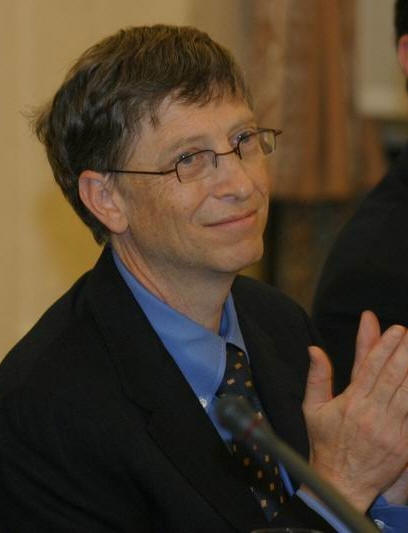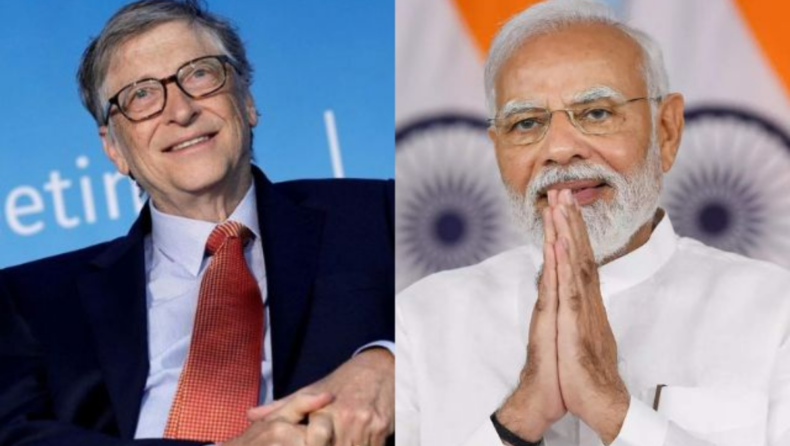
Bill Gates commended India’s world-leading approach to innovation
The co-founder of Microsoft and one of the world’s wealthiest individuals, Bill Gates recently ‘ during his virtual keynote address at the Grand Challenges Annual Meeting 2020. It is an annual meeting on a global platform that brings together innovators, investors, and policymakers to promote health and development solutions.
In his speech, Bill Gates lauded India’s efforts in developing innovative solutions for public health challenges, particularly in the fight against infectious diseases such as polio and tuberculosis. He stated that India’s ‘digital ecosystem’ had played a significant role in driving these innovations forward, citing the country’s biometric identity system, Aadhaar, as an example of a ‘world-leading approach’ to managing digital identity.
Gates also commended India’s ‘vibrant pharmaceutical industry,’ which has been a major player in the production of affordable generic drugs that have been instrumental in fighting infectious diseases around the world. He acknowledged that India had played a crucial role in driving down the cost of drugs such as HIV treatments and vaccines, making them accessible to people in low-income countries.
Bill Gates praised India’s efforts in promoting sanitation and hygiene, stating that the country had made significant progress in improving access to clean water and toilets in recent years. He highlighted the Swachh Bharat Abhiyan, the Indian government’s flagship cleanliness drive, as an example of a successful public health campaign that had contributed to reducing the prevalence of infectious diseases in the country.
Bill Gates comments on India’s innovative approach to public health challenges are particularly significant given that the country has often been criticized for its lack of progress in this area. India has one of the highest rates of infectious diseases in the world, with millions of people suffering from conditions such as tuberculosis, malaria, and dengue fever. The country has also been hit hard by the COVID-19 pandemic, with over 30 million confirmed cases and more than 400,000 deaths.
However, despite these challenges, India has made significant strides in developing innovative solutions to public health problems. For example, the country has been at the forefront of the global effort to eradicate polio, with its polio vaccination program serving as a model for other countries. India was declared polio-free in 2014, a major achievement gave that the disease was once endemic in the country.
India has also made significant progress in tackling tuberculosis, which is one of the leading causes of death in the country. The government has launched several initiatives aimed at improving the diagnosis and treatment of the disease, including the Nikshay Poshan Yojana, which provides financial incentives to patients who complete their treatment. In addition, the Indian pharmaceutical industry has developed several affordable generic drugs for TB, making treatment more accessible to people in low-income countries.
In recent years, India has also emerged as a global hub for innovation in the healthcare sector, with several startups developing cutting-edge solutions for public health challenges. For example, health tech startup Practo has developed a platform that allows patients to book appointments with doctors online. In contrast, diagnostic startup SigTuple uses artificial intelligence to analyze medical images and provide accurate diagnoses.

India’s digital ecosystem has been a major driver of these innovations, with the country’s large population and rapid adoption of mobile phones and the internet creating a fertile ground for tech startups. The government has also launched several initiatives aimed at promoting digital innovation, such as the Digital India program, which aims to provide digital infrastructure to all citizens.
Despite these achievements, India still faces significant challenges in public health. The country’s healthcare system is underfunded and understaffed, with many people lacking access to basic healthcare services. In addition, the COVID-19 pandemic has exposed the weaknesses of India’s healthcare infrastructure, with hospitals struggling to cope with inadequate resources.
Read More Such Articles
Meta Trying To Extinguish User-Data Claims By Cambridge Analytica
Anti-corruption contender in India trying to clear his name
TEC Spartans Program: Building Future Leaders in Gaming












